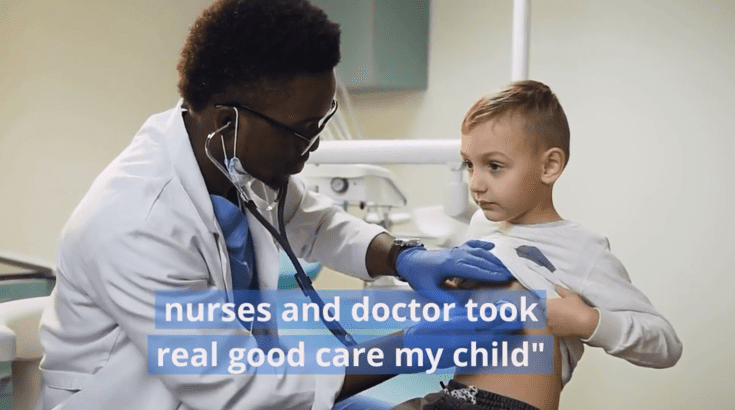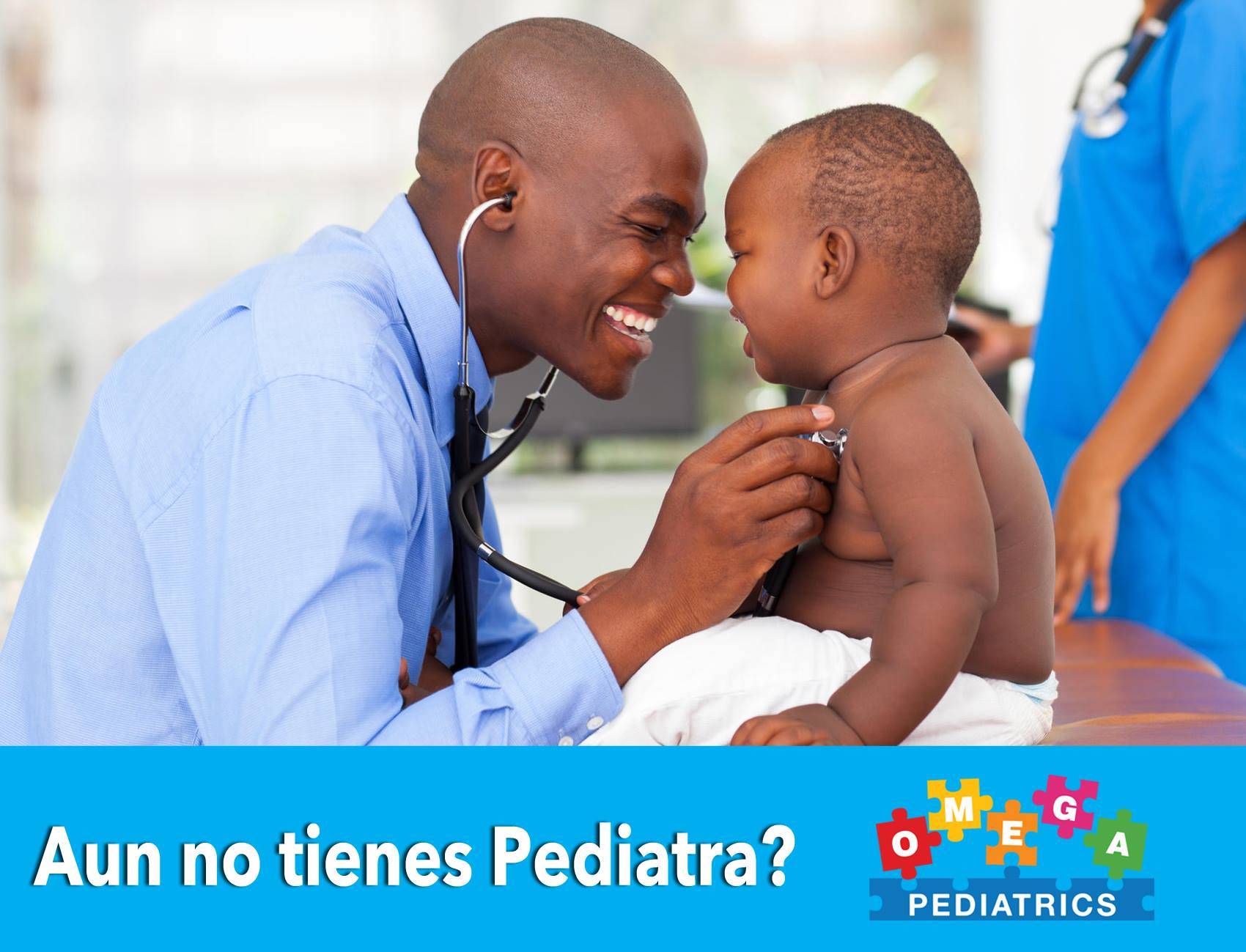Table of Contents
Besides being your child’s doctor, have you ever wondered what a pediatrician is? What does it like to be? What education and training are required to become one?
Babies are delicate and fragile, while children are physically small. Their bodies undergo rapid changes, both physically and mentally. This complex system of growth and development makes them a vulnerable age group to various illnesses.

This is where a pediatrician comes in! In a nutshell, they intervene to play a crucial role in ensuring children’s overall health and well-being. Indeed, pediatric care is synonymous with children’s healthcare.
Pediatric healthcare providers are trained to diagnose, treat, and prevent illnesses in children. Because of the children’s distinct physiological and developmental needs, babies and children need specialized care.
This page will explore and dig deep to learn more. Let’s read on!
What does a Pediatrician Do?
What is a pediatrician? The simplest answer is a medical doctor trained beyond basic physician training. They undergo training in the particular skills necessary to provide:
- Medical care for acute illness in a newborn, child, teenager, or young adult up to 21 years old. This includes chronically ill care and coordinating care for children after hospital discharge.
- Preventive care. This includes immunizations, health screenings, and well-child monitoring.
- Coordination of care. Children are examined as a whole package. They collaborate with other healthcare providers to manage their young patients at every developmental stage.
Pediatricians, as primary care physicians, manage their patients holistically, including mental, physical, and emotional well-being, not just treating disease. This is the WHO definition that has yet to be amended since 1984.

These physicians also involve school nurses, counselors, and law enforcement agencies. The main areas of focus are jobs relating to:
- reducing death of infants and children, that is, infant and childhood mortality,
- educating families about illness and health and helping them lead healthy lifestyles based on the available science,
- advocating for children, children’s rights, and children’s education, and
- promoting modern interventions, including basic hygiene and immunizations, to prevent childhood infections.
A Pediatrician is the First to Notice
For many conditions of ill health in children, pediatricians are usually the first to notice the ‘out of the normalcy’. This is possible since they build relationships with children and their parents, thus establishing a robust communication channel.
An effective doctor-patient communication channel makes it easier for the doctor to listen to parental concerns and interactions. This may include productive discussions, respectful discourse, counseling, and therapy for behavioral and mental health issues.
Effective communication enables the doctor to notice irregularities in physical issues (deformities), mental health (anxiety or depression), behavior (ADHD, developmental disorders), or functional problems (bed-wetting or temper tantrums).
The Omega Pediatrics Promise
Here at Omega Pediatrics in Roswell, GA, we know that our role is vital to the overall health of children and their families. We have developed a 3D model of access that makes us reachable at any time by the families we cater to for their kids.
To say it all, accessibility to healthcare services is one of Omega Pediatrics’ pillars.
What Education and Training are Required to Become a Pediatrician?
The education and training needed to become one involve two post-high school phases:
Medical Doctor (MD) Training
The first phase is that the individual must first train to become a medical doctor. He or she should complete an undergraduate degree and then proceed to complete medical school. This phase takes six to eight years.
Pediatric Specialty Training
After medical school, the second phase is proceeding to specialty training. The individual needs to complete a pediatric residency training program for board certification.
The Accreditation Council for Graduate Medical Education (ACGME) will grant recognition to the residency program. This second phase takes three years to accomplish.
Many pediatricians work in hospitals as hospitalists or sub-specialists. They’re required to render 12,000–14,000 hours of patient care while in training. Others work in primary care clinics and help coordinate the medical home for families.
Continuing Education

While in medical practice, these doctors continually update their skills and knowledge to stay current with the latest medical advances. This is done through continued education, self-assessment, and clinical improvements.
Pediatricians attend industry-related or specialty-specific conventions, conferences, symposiums, roundtable discussions, and grand rounds. Additionally, they have affiliations with local, national, or even international associations.
Specialized Pediatricians: Their Importance in Pediatric Care
In the US and other countries with sophisticated health systems, pediatric care has become more segmented. This means the pediatric population being seen and cared for requires specialized training.
Thus, specialized training or subspecialties in general pediatrics have evolved. The individual pursues fellowships in pediatric subspecialties. Here are a few examples of subspecialists in the practice of pediatrics.

Neonatologists specialize in newborn to 1-month-old children, including premature infants. If you give birth preterm, your primary pediatrician may recommend your newborn to a neonatologist who is an expert in managing your preemies at the NICU.
Pediatric intensivists specialize in acute and intensive care for pediatric patients. They provide continuous care for chronically ill patients and premature infants.
Developmental-behavioral pediatricians specialize in the behavioral issues of teens and children. This includes school avoidance, learning disorders, bedwetting, dyslexia, autism, and attention deficit hyperactive disorder (ADHD).
New sub-specialties will emerge over time as pediatric healthcare becomes more segmented. Modern science and research pave the way as children’s illnesses become more complicated.
Developmental Milestones: How Your Pediatrician Can Help
Understanding your child’s developmental milestones is essential for their growth and well-being. These refer to the expected skills and abilities children learn to acquire as they grow and develop, such as walking, crawling, and your child’s first words.
Parents must monitor their child’s progress to detect potential developmental delays. Your pediatric doctor is the perfect ally in this aspect, guiding you on age-appropriate skills your child should have at every developmental stage.
Your pediatric doctor helps through counseling and advice about your child’s growth. They conduct screenings to clinically assess potential developmental issues early on. As such, a treatment plan can be specially designed for your child.
Common Health Conditions Treated by Pediatricians
These doctors play a vital role in identifying and treating a wide variety of common health issues affecting children.
The most prevalent medical conditions are respiratory infections (bronchitis and pneumonia), gastrointestinal conditions (diarrhea and constipation), skin problems (eczema and acne), and mental health concerns (anxiety and depression).
With the specialized training and expertise of the medical team at Omega Pediatrics, they are equipped to identify and diagnose health conditions that affect children, from minor illnesses to serious diseases.
The Importance of Regular Check-Ups with Your Child’s Pediatrician
Regular check-ups are important. Pediatricians are trained to monitor and identify any developmental, behavioral, or health concerns that may arise in children.
By scheduling routine check-ups, you allow your child’s doctor to track their growth and development, catch potential health issues early on, and provide preventive care to keep your child healthy.
Regular check-ups also allow you to discuss concerns about your child’s health or development. It’s recommended that infants and young children receive frequent check-ups, with fewer visits as they get older.
What about a Family Physician?
Family physicians may fit the role of a pediatrician if they have reasonable experience, training, and interest in providing care to the pediatric population. Thus, while most parents typically go to pediatricians, family physicians can also fill the role.
Age of Patients
The main difference between a pediatrician and a family doctor lies in the age of the patients. The former specializes in children of all ages, while the latter treats patients of all ages. Thus, family doctors provide care for the entire family—children and adults.
Expertise and Training
Pediatricians have more in-depth knowledge about the growth, development, and behavior of children. They have more experience treating conditions affecting children.
Furthermore, pediatricians are trained in the stages of child development. They have expertise in recognizing the symptoms of developmental disorders in young children.
Family doctors have a broader scope of expertise, treating patients from infancy to adulthood. They have training in various medical fields, including internal medicine and gynecology, certified through the American Board of Family Medicine.
Family doctors may have more experience treating adults, as their training is focused on disease and chronic illness in patients of all ages.
Pediatrician or Family Medicine Doctor: Which to Choose?
Choosing between a pediatrician and a family doctor entirely depends on the patient’s condition and the specific needs of your child.
Why Choose the Best Pediatrician?
Choosing the best pediatrician for your child’s health is essential for several reasons:
Firstly, a competent pediatrician, such as your provider at Omega Pediatrics, will provide specialized medical care that caters to the unique needs of children. They have specialized training and experience in treating children from infancy to adolescence.
Secondly, a pediatrician who can communicate effectively with you and your child will foster a trusting and collaborative relationship, leading to better health outcomes. Your provider at Omega Pediatrics can comply with this requirement.
Lastly, a skilled and experienced pediatrician can identify and address any health issues early on, preventing the progression of diseases and ensuring that your child stays healthy and happy. Omega Pediatrics takes pride in this.
Choose Omega Pediatrics for Your Child’s Healthcare Needs!
Our children are our future! From a macro perspective, the young generation shapes the community’s future, both locally and globally. And this calls for healthy children—mentally and physically.
Learning the vital role of a pediatrician in your child’s health and overall well-being is synonymous with providing the best care to our children. Your provider at Omega Pediatrics has the experience and expertise to provide top-notch medical care.
We at Omega Pediatrics are one family. We work with you as parents through patient education, guidance, and counseling. We are your perfect ally in your parenting journey to provide the best possible care for our children. Let’s work together!
FAQ
What does a pediatrician do?
Pediatricians are medical doctors trained to provide medical care for acute illnesses, preventive care including immunizations and well-child monitoring, and coordinate care for children up to 21 years old. They focus on the physical, mental, and emotional well-being of children.
Why is effective communication important in pediatric care?
Effective doctor-patient communication enables pediatricians to notice irregularities in physical, mental, behavioral, or functional issues in children. This communication also fosters productive discussions, respectful discourse, and counseling for behavioral and mental health issues.
What education and training are required to become a pediatrician?
Becoming a pediatrician involves completing an undergraduate degree, followed by medical school (6-8 years), and then pediatric residency training (3 years). Pediatricians also engage in continuing education to stay updated on medical advances.
What are the common health conditions treated by pediatricians?
Pediatricians treat a wide variety of common health issues affecting children, including respiratory infections, gastrointestinal conditions, skin problems, and mental health concerns. They are equipped to identify and diagnose health conditions from minor illnesses to serious diseases.
Pediatrician or family medicine doctor: Which to choose?
Choosing between a pediatrician and a family doctor depends on the patient’s condition and specific needs. Pediatricians specialize in children’s health from infancy to adolescence, while family doctors treat patients of all ages. Pediatricians have expertise in child development and treating conditions affecting children.


